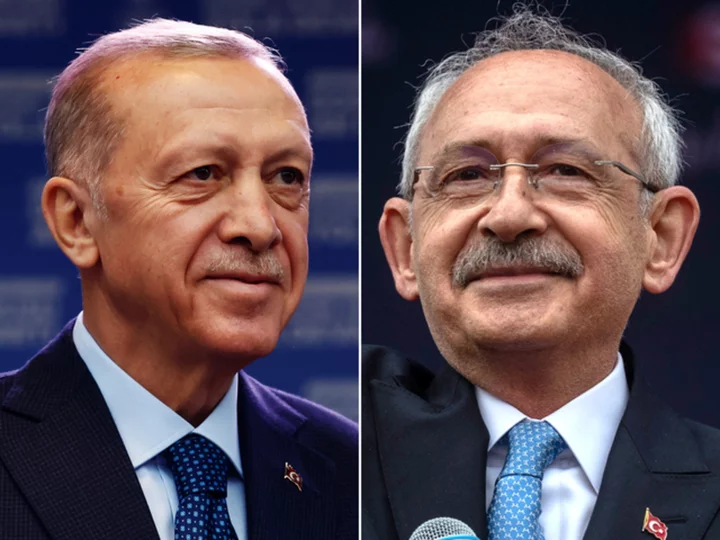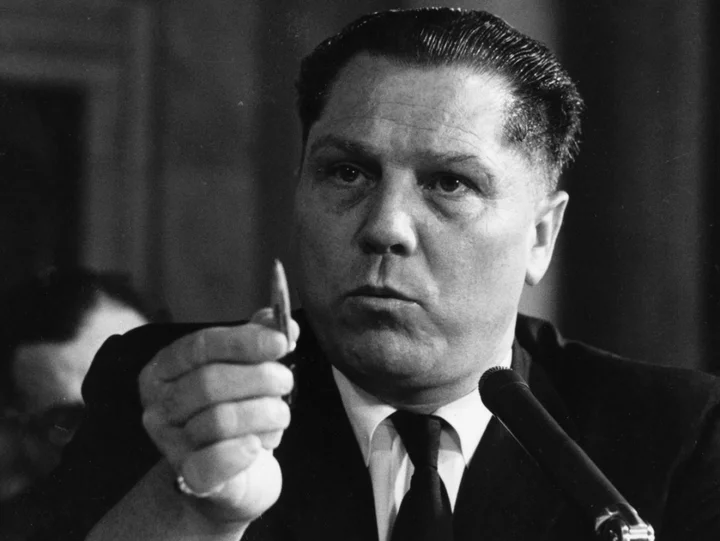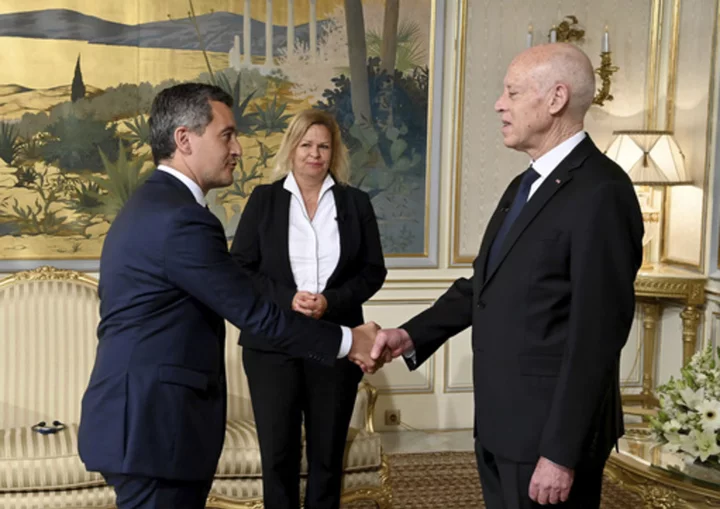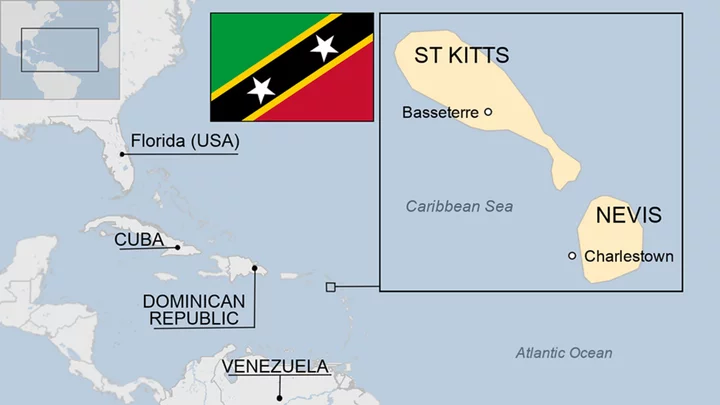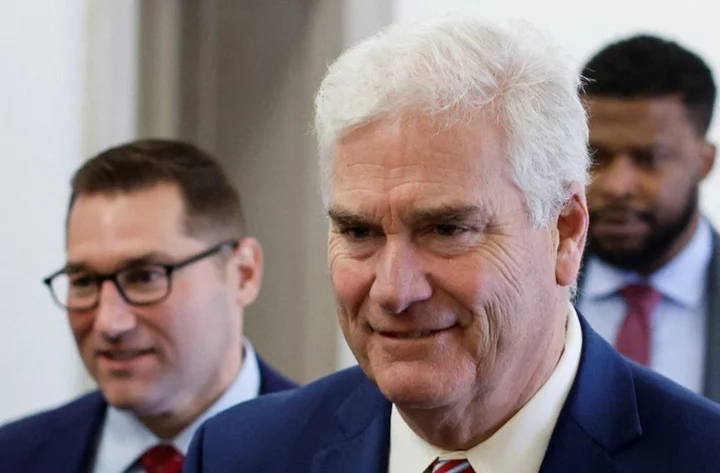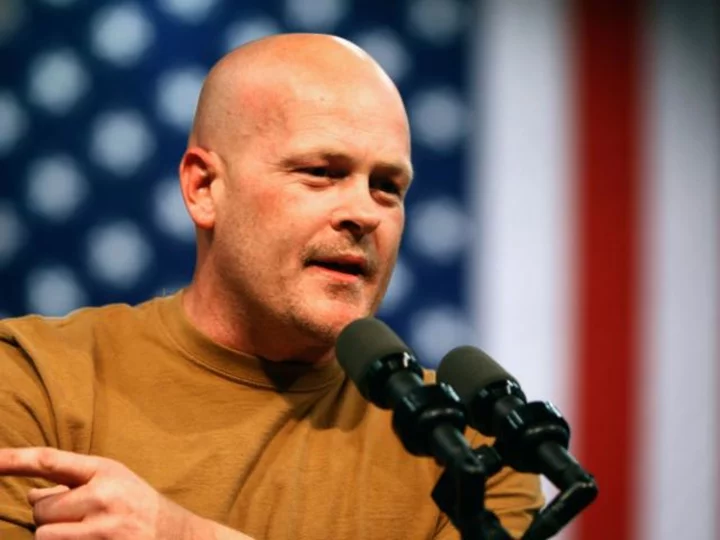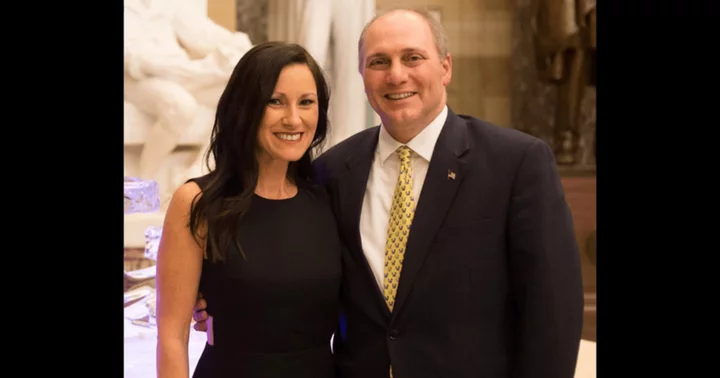Turkey's long-term leader Recep Tayyip Erdogan is going up against opposition candidate Kemal Kilicdaroglu in Sunday's run-off presidential election.
The build-up to the first round suggested a narrow race, with Erdogan facing unprecedented pressure after 20 years in power.
Instead Erdogan defied expectations and only narrowly missed out on winning outright.
The vote took place nearly four months after a February 6 earthquake killed more than 50,000 people and displaced more than more than 5.9 million across southern Turkey and northern Syria. It also came amid a serious economic crisis and what analysts say is democratic erosion under Erdogan's government.
Here's what you need to know about the run-off vote:
How do Turkey's elections work?
Turkey holds elections every five years. Presidential candidates can be nominated by parties that have passed the 5% voter threshold in the last parliamentary election, or those who have gathered at least 100,000 signatures supporting their nomination.
The candidate who receives more than 50% of votes in the first round is elected president, but if no candidate gets a majority vote, the election goes to a second round between the two candidates who received the highest number of votes in the first round.
Voter turnout in the first round on May 14 stood at nearly 90% according to the Supreme Election Council (YSK), yet no single candidate received an absolute majority, taking the election to a runoff.
Erdogan received 49.52% of votes in the first round, giving him a five-point lead over Kilicdaroglu. His bloc won a comfortable majority in the legislature in a parallel parliamentary vote.
The runoff will take place Sunday. Polls open at 8:00 a.m. local time (1 a.m. ET) and close at 5 p.m. (10 a.m. ET). Results are expected after 9 p.m. (2 p.m. ET) local time.
Who are the contenders?
The two candidates with the highest number of votes, Erdogan and Kilicdaroglu, are running.
The longest serving Turkish leader since the modern Turkish republic was established, Erdogan has been in power for two decades, first as the country's prime minister and then as president.
The 69-year-old, who began his rule with widespread religious freedoms and an economic boom, has over the years consolidated power and saw Turkey's $800 billion economy fall to a disastrous slump amid unorthodox fiscal policies.
Right-wing Ancestral Alliance candidate Sinan Ogan Sinan Ogan, who emerged with 5.17% of the votes in the first round, on Monday said that he was endorsing Erdogan in the runoff and urged his voters to support him.
Ogan had conditioned his endorsement of either candidate on hardened policies towards refugees and some Kurdish groups he perceives as terrorists.
A lawmaker representing the CHP since 2002 -- the same year that saw Erdogan's AK Party rise to power -- Kilicdaroglu, 74, climbed up the political ladder to become his party's seventh chairman in 2010.
Born in the eastern, Kurdish-majority province of Tunceli, the party leader ran in Turkey's 2011 general election but lost, coming second to Erdogan and his AK Party.
Kilicdaroglu represents the party formed 100 years ago by Mustafa Kemal Ataturk, the founding father of modern Turkey and a die-hard secularist. He stands in stark contrast to Erdogan's Islamist-rooted party and its conservative base.
Despite his secular leanings, however, the opposition candidate and his alliance have vowed to represent all factions of Turkish society, which analysts say was demonstrated in his diverse coalition.
Since the vote his speeches have taken what analysts called a "shift in gear", with Kilicdaroglu vowing to send back millions of migrant's Turkey hosts.
What are the international implications?
One of the world's largest economies and with a population of 85 million, Turkey sits at the heart of an increasingly polarized world order.
A NATO member that has the alliance's second-largest army, Turkey has strengthened its ties with Russia in recent years. Erdogan's growing friendship with Russian President Vladimir Putin has raised eyebrows in the West, especially amid Moscow's continued onslaught in Ukraine.
In defiance of the US, Turkey even bought weapons from Russia in 2019, and last year caused a headache for NATO's expansion plans by stalling the membership of Finland and Sweden.
In an exclusive interview with CNN's Becky Anderson, Erdogan said that Turkey has a "special" and growing relationship with Russian President Vladimir Putin.
"We are not at a point where we would impose sanctions on Russia like the West have done. We are not bound by the West's sanctions," Erdogan said. "We are a strong state and we have a positive relationship with Russia."
"Russia and Turkey need each other in every field possible," he added.
Kilicdaroglu has said that he would not seek to emulate Erdogan's personality-driven relationship with Putin, and instead recalibrate Ankara's relationship to Moscow to be "state-driven."
But even if Erdogan is ousted in the polls, a foreign policy U-turn for Turkey is not a given, analysts said. While figures close to the opposition have indicated that if victorious, it would reorient Turkey back to the West, others say core foreign policy issues are likely to remain unchanged.
Despite their disagreements, Turkey has been useful to its Western allies under Erdogan. Last year Ankara helped mediate a landmark grains export deal between Ukraine and Russia, and even provided Ukraine with drones that played a part in countering Russian attacks. And while Sweden is still awaiting its accession to NATO, Finland has been allowed in.
What are voters' main concerns?
High on voters' list of concerns is the state of the economy and the damage caused by the earthquake. Even before the February disaster, Turkey was struggling with rising prices and a currency crisis that in October saw inflation hit 85%.
That impacted the purchasing power of the public and is "fundamentally the reason why Erdogan's popularity has been eroded," said Sinan Ulgen, a former Turkish diplomat and chairman of Istanbul-based think-tank EDAM. "That is going to be the major handicap for Erdogan," he said.
Voters are also casting their ballots based on whom they see as more capable of managing the fallout from the earthquake, as well as shielding the country from future disasters, analysts say, adding that Erdogan's popularity had not taken the expected political impact.
"There is a debate about which electoral platform provides the right solution to address these vulnerabilities and enhance Turkey's resilience to these national disasters," Ulgen said.
Apart from the economy and the government's management of Turkey's frequent natural disasters, voters are likely concerned with Erdogan's turn away from democracy -- something the opposition has campaigned to reverse.
In his interview with CNN, Erdogan defended his economic policies and denied cracking down on freedoms.
Who is likely to win?
Despite facing the strongest opposition yet to his rule, Erdogan's future does not look as dark as some predicted earlier this year.
The president is supported by a substantial religious sector, which appears to have barely been dented by the flailing economy or the government's shambolic early response to the earthquake.
Erdogan's critics argue that Erdogan further galvanized his support base by leveling unsupported allegations at the opposition camp. He accused Kilicdaroglu of colluding with Kurdish terror groups and repeatedly referred to the opposition leader — a member of the liberal Muslim Alevi minority — as a not-good-enough Muslim.
"This strategy of 'not good Muslim and backed by terrorists' appealed to right-wing voters that were supposed to pick Kilicdaroglu," said Soner Cagaptay, senior fellow at the Washington Institute for Near East Policy.
Cagaptay argues that while Erdogan's message did not resonate in Turkey's big cities and the relatively affluent southern coastline, all of which voted largely for the opposition, it garnered necessary support from poorer parts of the country, namely in central regions and on the Black Sea coast.
"There, support for Kilicdaroglu was suppressed because right-wing voters whose own parties backed Kilicdaroglu did not pick him," he said.
Erdogan's messaging was also amplified by his broad sway over Turkish media, critics argued.
Still, Sunday's run-off is a first-ever presidential second round in Turkey. In 2019, Erdogan's ruling party lost the major cities in mayoral elections, including his own hometown, Istanbul. On May 14, the majority of Istanbul's votes went to the opposition.
It remains to be seen what Sunday's election holds, but if Erdogan wins by a landslide, Cagaptay said, "he will be vindicated on unorthodox economic policies, lack of rule of law and the end of social autonomy."

